Acupuncture for depression
Depression has become increasingly prevalent in modern society, with the World Health Organisation predicting that by 2020 depression will be second only to chronic heart disease as a major health problem worldwide. About two thirds of adults will at some time experience depression severe enough to interfere with their normal activities (Mintel/YouGov, 2006). Women are twice as likely to experience depression at times of hormonal changes, such as pre-menstrually, pregnancy, after childbirth and menopause. Almost everyone has experiences low mood at some point in their lives. However, when life circumstances become overwhelming, transient feelings of not being able to cope or anxiety can get out of hand, leading to full blown clinical depression. In addition, chronic health problems such as long-term pain can trigger depression.
Chinese Medicine is a comprehensive holistic system used for hundreds of years to affect mood. Acupuncture can effectively influence the complex interaction between our emotions and the body chemistry, hence promoting emotional and physical well-being. Studies indicate that acupuncture has an a positive effect on depression by regulating the brain’s mood chemistry, increasing the levels of “feel-good” hormones called endorphins and serotonin. Research has shown that some acupuncture points affect parts of the brain that are known to reduce sensitivity to pain and stress, as well as down-regulating the ‘analytical brain’ which is involved in anxiety and worry, thus promoting the relaxation response. A recent systematic reviews, found that acupuncture is similar in effectiveness to anti-depressant medication and should be recommended for patients with depression (Zhang, 2010)
At the London Acupuncture Clinic we take a thorough case history and provide each patient with an individualised treatment plan that may involve acupuncture, chinese herbal medicine and tuina. We can also advise on lifestyle and dietary changes, and other simple tools that may contribute to overcoming depression. Whilst we hope that we can provide patients with relief before pharmaceutical intervention is applied, we are committed to integrate our holistic approach into your medical treatment plan, helping to reduce the side effects of the medication and enhance their therapeutic effects.
Depression can be a lonely journey, and many of our patients report that coming regularly for treatment gives them back the energy to bounce back and take the right steps towards good mental and emotional health.
Mintel/YouGov (2006). “Depression poll commissioned by the British Association for Counselling and Psychotherapy.”
Zhang Z.J. et al (2010). “The effectiveness and safety of acupuncture therapy in depressive disorders: Systematic review and meta-analysis.” Journal of Affective Disorders,124 (1-2)9-21
